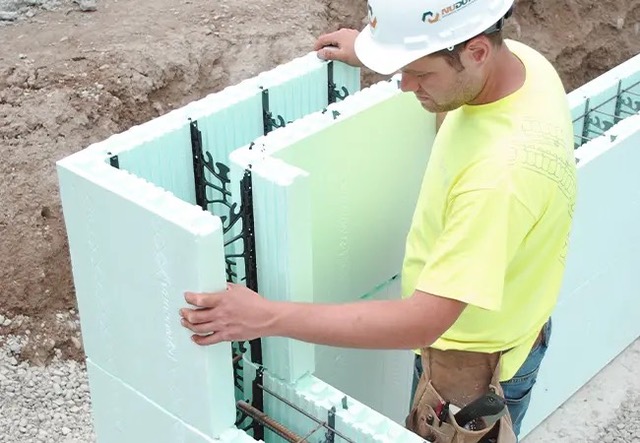Record-breaking heat this summer has prompted Virginia residents to reconsider the efficiency and resilience of their homes. With rising temperatures and persistent heat advisories, families are facing increased energy consumption and soaring utility bills. The situation has placed additional pressure on an aging power grid, making it imperative to adopt long-term solutions for homebuilding that prioritize energy efficiency and sustainability.
The rising temperatures serve as a call to action for homeowners and builders to invest in climate-resilient housing. Energy-efficient homes do more than provide comfort; they are essential for survival and financial stability in an unpredictable climate. One solution gaining traction is the use of insulated concrete forms (ICFs), which combine strength, energy efficiency, and sustainability in a cost-effective manner. ICFs resemble large foam blocks that are stacked, locked in place, and then filled with concrete, creating sturdy walls that offer both insulation and structural integrity in a single step.
As climate change intensifies, the construction of ICF homes is becoming increasingly relevant. These structures not only enhance energy efficiency but also provide durability against extreme weather. ICFs are designed to withstand fire, wind, pests, and moisture, making them resilient against hurricanes, tornadoes, and earthquakes. Additionally, the combination of concrete and foam insulation effectively reduces outside noise, contributing to quieter indoor environments.
Building a Sustainable Future
In Virginia, organizations such as Habitat for Humanity Peninsula and Greater Williamsburg are actively incorporating ICFs into their homebuilding initiatives. Currently, two ICF homes are under construction in Toano, while Habitat for Humanity Amherst County has just completed its first two ICF homes. Builders like ICF Homes of Virginia, led by founder David Phelps, are also championing the benefits of ICF construction, making it accessible to a wider audience.
Phelps has dedicated over 20 years to creating custom ICF homes that emphasize durability and energy efficiency. Recently, his company has introduced simplified floor plans to lower the financial barrier for first-time homebuyers. “In our business, we define sustainability as a home that lasts for hundreds of years, not one that gets knocked down or burned every 50 years and rebuilt with the same materials,” Phelps stated. “We build homes assuming they won’t need to be rebuilt for generations. To me, that’s true sustainability.”
The Role of Industry Expertise
As the regional sales manager at Luck Stone and a board member of the Virginia Ready Mixed Concrete Association, Charlie Bartocci emphasizes the importance of adapting to evolving building standards and environmental challenges. He asserts that ICFs are a reliable option that aligns with both sustainability and long-term performance goals.
Bartocci notes that investing in smarter construction is not solely about cost savings. It is about creating a stronger, safer, and more sustainable future for generations to come. As more builders and homeowners recognize the benefits of ICFs, this construction method is rapidly gaining popularity across the industry.
Ultimately, the push for energy-efficient homes in Virginia reflects a broader trend toward resilience in the face of climate change. The adoption of ICFs and similar technologies is crucial for ensuring that homes provide not just shelter, but also stability and security in an uncertain future.
